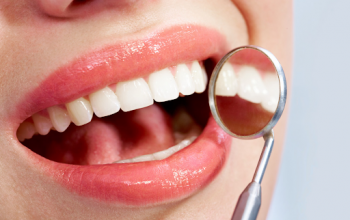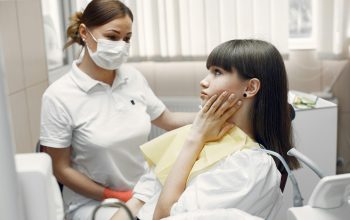
Your teeth, once you’ve got your permanent ones, are really all that you’ve got. Once you lose your adult teeth, they are not coming back. And your overall oral health is really quite and important thing, not to be underestimated in its importance. Fortunately, there are a number of steps that can be taken to preserve this oral health, and even to improve it.
For instance, basic daily dental care can go a long way towards improving overall oral health. Ideally, you will be brushing your teeth twice throughout the day and flossing around once. Brushing your teeth as soon as you get up in the morning, before you eat or drink anything except water, is likely to be particularly good for them, as the toothpaste can provide something of a protective coating over your teeth, preventing them from any damage from the foods that you then go on to consume not just for your breakfast meal, but throughout the rest of your day as well.
In addition to this, regular dental check ups are hugely important as well. In a perfect world, you’ll be seeing your dentist at least once every six months, but you should at least be getting in to see your dentist at least once throughout the course of a year. This will help the dentist in question to stay on top of your oral health and to identify anything with the potential to become problematic before it can worsen and actually become that.
Seeking the help of a dentist for a chronic pain condition is also popular, particularly in the case of TMJ. Unfortunately, TMJ is a more widespread condition than many people actually realize. According to recent data, it impacts the lives of up to 35 million people all throughout the United States. Unfortunately, only around half of the total population of sufferers will ultimately seek treatment, even those (around 15% of the TMJ population) who develop chronic symptoms of the condition. Fortunately, however, those who do seek out treatment are likely to experience quite a good deal of relief and therefore and improvement in overall quality of life.
You might ultimately need a tooth extraction as well, something that should always be performed at the hands of a qualified dental professional alone. Wisdom teeth extraction is particularly common, so common that up to five million people throughout the United States will have the wisdom tooth removal procedure done over the course of just one singular year. Wisdom teeth extraction is typically performed due to the fact that there is not enough space in the average person’s mouth for wisdom teeth to healthily grow in. Because of this, wisdom teeth that are simply just left to grow in can lead to all sorts of dental problems that are much better to be avoided at the end of the day.
Even after the procedure, there will certainly be certain precautions that need to be avoided. For instance, alcohol after tooth extraction is a bad idea. Because of the properties of alcohol, consuming alcohol after tooth extraction – especially alcohol after tooth extraction before healing has really had time to take place – can thin the blood in the area and make the process of healing all the more difficult, thus significantly increasing the chances for infection – even serious infection – to really set in. Ultimately, making the decision to consume alcohol after tooth extraction can make it more likely that you’ll injure the area as well, especially if you become seriously intoxicated and no longer are taking the care and precautions that you otherwise would be.
At the end of the day, the care and keeping of your mouth, through regular dental care and even just avoiding alcohol after tooth extraction, is something that will more than pay off down the line. It’s important to take such steps as avoiding alcohol after tooth extraction, as they can have much more severe consequences than many people even actually really realize. After all, some people might not even know that consuming alcohol after tooth extraction could lead to such detrimental results, but it can! Seeking dental advisement when necessary is a must.



